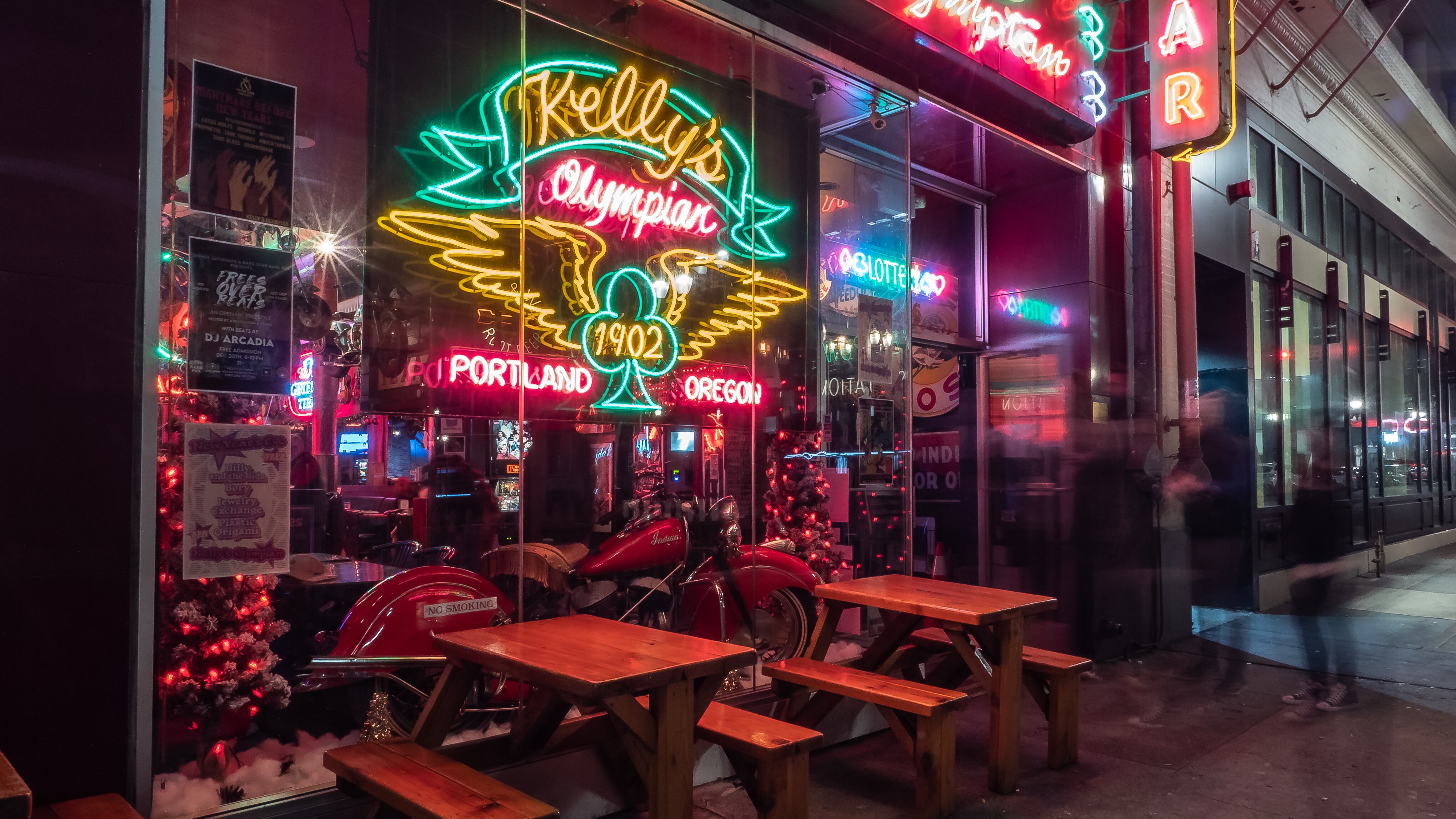Since it opened in 1902, Kelly’s Olympian, the bar on Southwest Washington Street, has survived two world wars, the Depression, Prohibition, the Great Recession, the 2020 protests and COVID-19.
It’s an open question whether it will survive the fentanyl den across the street between 4th and 5th avenues.
Kelly’s is hanging on “by a string,” says owner Ben Stutz. Blight, crime and untreated mental illness and addiction in downtown Portland are driving customers away, and Stutz is spending $15,000 a month on full-time security guards for Kelly’s and tenants on the floors above. Recently, a woman came in, splashed the bartender with soda and screamed F-bombs before heading to the restroom.
Kelly’s is next door to the most notorious building in Portland: Washington Center, a vacant, 1970s-era commercial complex that remains an open-air fentanyl market despite police sweeps and the installation of panel upon panel of plywood to cover alcoves and outdoor stairs.
Stutz, 66, moved to Portland in 1987 to practice law, then got into the real estate business and bought Kelly’s, along with the rest of the six-story Bullier Building, in 2005. He says he’s at the end of his rope after seeing an interview on Fox News on April 29, in which Mayor Ted Wheeler bragged that Esquire magazine named Portland’s Kann the best new restaurant in America and that Forbes called Portland one of the best places to travel in 2023. Wheeler told Fox he was “optimistic” about Portland’s future.
“The mayor’s office is in La La Land,” Stutz says. “It’s like, where are you living, man?”
This week, WW talked to Stutz about what he’s seeing. The interview has been edited for brevity and clarity.
WW: You’re from Detroit. Is Portland going the way of your hometown?
Ben Stutz: I have friends from back home who six months ago were saying this is like Detroit. And I said, “It’s not, guys, come on, gimme a break. Let’s calm down.” Now, I’m going back to these guys and saying that I never thought this could possibly happen here. But one storefront after another is closing.
I’m not scared of a little grit. But this is way beyond that. Downtown is dangerous. Our employees have been beat up and threatened. We have lost societal norms here. At a meeting with city officials, a police officer told me he had someone blow fentanyl smoke in his face. I asked if he gave the guy a ticket. “No,” he said. “The DA won’t prosecute.” We are in a situation where people are literally blowing fentanyl smoke in a policeman’s face.
What would you like the city to do?
I would like them to board up more of Washington Center, under the awning, where there is protection from the rain. I would like more police patrols. Just walk the street. Go in and deal with people. Make it uncomfortable for people to break the law. I’d also like to see the governor get some State Police and National Guard out here like they’re doing in San Francisco. California Gov. Gavin Newsom is not what you’d call a bleeding heart. He took a look at San Francisco and said, “We can’t have this happen.” But our governor isn’t doing that. The mayor talks about a reset. The governor needs to talk about a reset too.
How is this affecting business?
We have security guards. But on top of that, we have to schedule more employees because no one can work alone. There have to be two people in the front of the house all the time. So, payroll is up significantly. And we can’t just have one security guard, we have to have two because the violence is so crazy. On the weekends, we’ve literally had five people fighting off intruders: two security guards, a box office person, a bartender and our manager.
Kelly’s has survived in part because you opened a music venue at the same location. Is that still helping?
We have bands that have been playing in our place for years. Now they are saying, “You know, man, we’re a little bit worried about playing in your neighborhood right now.” These are not butterfly-type folks. We’ve lost some band nights because the band people just won’t come.
So, you’re not optimistic like Mayor Wheeler?
No. We started this conversation talking about Detroit, and is that where we’re heading? It’s drip, drip, drip. It’s one business after another after another. It’s one storefront closing and then another and another. At a certain point you lose a quarter of a street. It’s like cancer.
